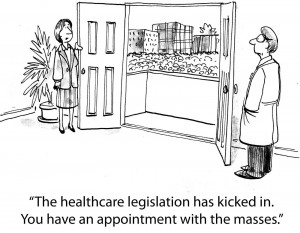 I have tried to inform my clients about fake IRS calls. Still, their blood pressure goes up and my clients call me when they get one. Today, I heard a story on the radio of the scammers’ desperation. The taxpayer hung up the phone on the phony IRS agent. This scammer then called 911 and reported the taxpayer’s address and that they had a gun and were going to shoot someone. The police were dispatched to the taxpayer’s house and surrounded it. The daughter was home alone and obviously shaken.
I have tried to inform my clients about fake IRS calls. Still, their blood pressure goes up and my clients call me when they get one. Today, I heard a story on the radio of the scammers’ desperation. The taxpayer hung up the phone on the phony IRS agent. This scammer then called 911 and reported the taxpayer’s address and that they had a gun and were going to shoot someone. The police were dispatched to the taxpayer’s house and surrounded it. The daughter was home alone and obviously shaken.
Here are some tips from the IRS on scammers
IRS-Impersonation Telephone Scams
An aggressive and sophisticated phone scam targeting taxpayers, including recent immigrants, has been making the rounds throughout the country. Callers claim to be employees of the IRS, but are not. These con artists can sound convincing when they call. They use fake names and bogus IRS identification badge numbers. They may know a lot about their targets, and they usually alter the caller ID to make it look like the IRS is calling.
Victims are told they owe money to the IRS and it must be paid promptly through a pre-loaded debit card or wire transfer. If the victim refuses to cooperate, they are then threatened with arrest, deportation or suspension of a business or driver’s license. In many cases, the caller becomes hostile and insulting. Or, victims may be told they have a refund due to try to trick them into sharing private information. If the phone isn’t answered, the scammers often leave an “urgent” callback request.
Note that the IRS will never:
- Call to demand immediate payment using a specific payment method such as a prepaid debit card, gift card or wire transfer. Generally, the IRS will first mail you a bill if you owe any taxes.
- Threaten to immediately bring in local police or other law-enforcement groups to have you arrested for not paying.
- Demand that you pay taxes without giving you the opportunity to question or appeal the amount they say you owe.
- Ask for credit or debit card numbers over the phone.
Remember: Scammers Change Tactics — Aggressive and threatening phone calls by criminals impersonating IRS agents remain a major threat to taxpayers, but variations of the IRS impersonation scam continue year-round and they tend to peak when scammers find prime opportunities to strike.
Surge in Email, Phishing and Malware Schemes
The IRS saw an approximate 400 percent surge in phishing and malware incidents in the 2016 tax season.
Scam emails are designed to trick taxpayers into thinking these are official communications from the IRS or others in the tax industry, including tax software companies. These phishing schemes can ask taxpayers about a wide range of topics. Emails can seek information related to refunds, filing status, confirming personal information, ordering transcripts and verifying PIN information.
Variations of these scams can be seen via text messages, and the communications are being reported in every section of the country.
When people click on these email links, they are taken to sites designed to imitate an official-looking website, such as IRS.gov. The sites ask for Social Security numbers and other personal information, which could be used to help file false tax returns. The sites also may carry malware, which can infect people’s computers and allow criminals to access your files or track your keystrokes to gain information.
Email Phishing Scam: “Update your IRS e-file”
The IRS is aware of email phishing scams that appear to be from the IRS and include a link to a bogus web site intended to mirror the official IRS web site. These emails contain the direction “you are to update your IRS e-file immediately.” The emails mention USA.gov and IRSgov (without a dot between “IRS” and “gov”), though notably, not IRS.gov (with a dot). Don’t get scammed. These emails are not from the IRS.
What do you do if you get these messages?
- Do not respond to the email or click on the links.
- Instead, they should forward the scam emails to the IRS at phishing@irs.gov.
For more information, visit the IRS’s Report Phishing web page.
Remember, the IRS does not initiate contact with taxpayers by email to request personal or financial information.
#irscalls #irsscamers #fakeIRS
























